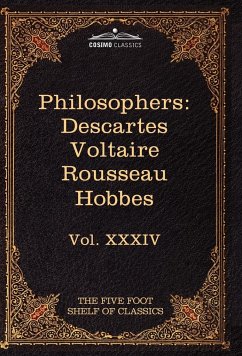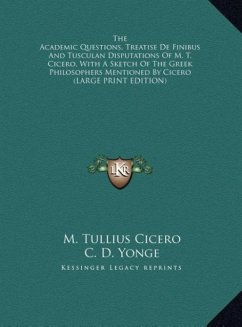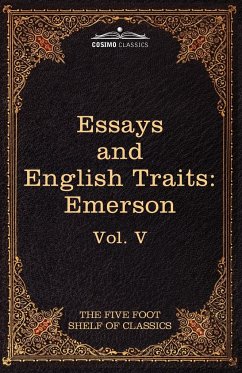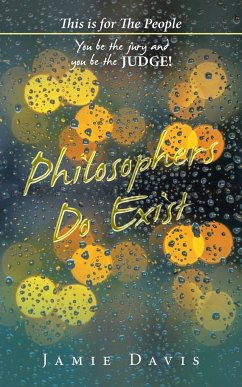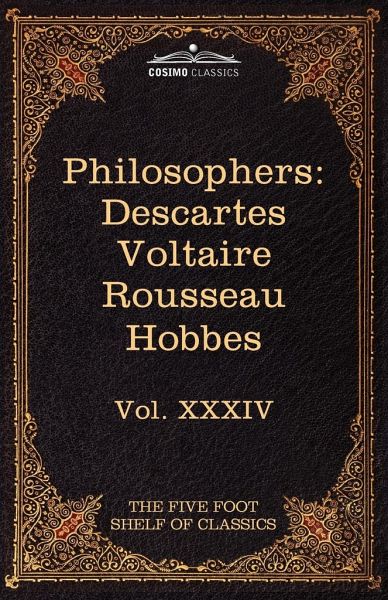
French and English Philosophers
Descartes, Voltaire, Rousseau, Hobbes: The Five Foot Shelf of Classics, Vol. XXXIV (in 51 Volumes)
Herausgeber: Eliot, Charles W.

PAYBACK Punkte
14 °P sammeln!
Author names not noted above: J.J. Rousseau and Thomas Hobbes. Originally published between 1909 and 1917 under the name "Harvard Classics," this stupendous 51-volume set-a collection of the greatest writings from literature, philosophy, history, and mythology-was assembled by American academic CHARLES WILLIAM ELIOT (1834-1926), Harvard University's longest-serving president. Also known as "Dr. Eliot's Five Foot Shelf," it represented Eliot's belief that a basic liberal education could be gleaned by reading from an anthology of works that could fit on five feet of bookshelf. Volume XXXIV featu...
Author names not noted above: J.J. Rousseau and Thomas Hobbes. Originally published between 1909 and 1917 under the name "Harvard Classics," this stupendous 51-volume set-a collection of the greatest writings from literature, philosophy, history, and mythology-was assembled by American academic CHARLES WILLIAM ELIOT (1834-1926), Harvard University's longest-serving president. Also known as "Dr. Eliot's Five Foot Shelf," it represented Eliot's belief that a basic liberal education could be gleaned by reading from an anthology of works that could fit on five feet of bookshelf. Volume XXXIV features great works by French and English philosophers of the 17th and 18th centuries: ¿ "Discourse on the Method of Rightly Conducting the Reason and Seeking the Truth in the Sciences," by RENÉ DESCARTES (1596-1650) ¿ "Letters on the English," by François-Marie Arouet (1694-1778), aka VOLTAIRE ¿ "Discourse Upon the Origin and the Foundation of the Inequality Among Mankind" and "Profession of Faith of a Savoyard Vicar," by JEAN JACQUES ROUSSEAU (1712-1778) ¿ "Of Man, Being the First Part of Leviathan," by THOMAS HOBBES (1588-1679)



